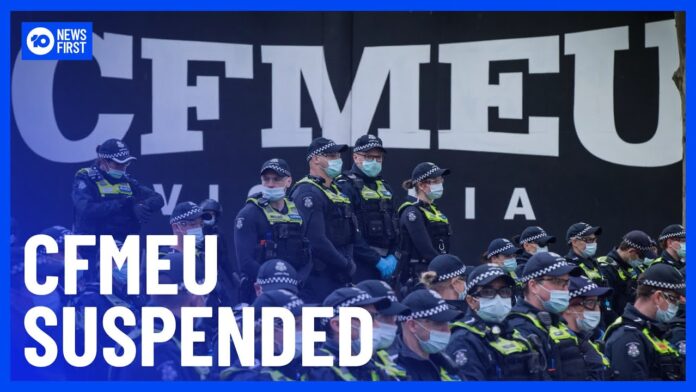ACTU staff work from home amid fallout from CFMEU’s alleged organized crime ties
The Australian labour movement was rocked this week by the suspension of the Construction, Forestry, Maritime, Mining and Energy Union (CFMEU) from affiliated bodies and the Labor Party in multiple states. This unprecedented move follows extensive investigations by leading media outlets into the union’s purported links to organized crime. The revelations have prompted swift and severe responses across political, legal, and union spheres, casting a shadow over union rights and organizational integrity.
ACTU Secretary Sally McManus announced on Wednesday that as a precautionary measure, all ACTU staff were advised to work remotely due to concerns over potential safety risks stemming from the fallout. This decision came after the CFMEU, a historically influential union representing workers in construction and related industries, faced damning accusations of criminal associations, including ties to motorcycle gangs and involvement in illicit activities.
Political leaders, including members of the Labor Party’s national executive, convened urgently to address the crisis. The CFMEU’s suspension from Labor Party branches in New South Wales, Victoria, South Australia, and Tasmania marks a significant rift in the traditionally symbiotic relationship between unions and the political left in Australia. Workplace Relations Minister Tony Burke escalated matters by seeking legal avenues to place the union under administration, citing the need to restore accountability and protect union members’ interests.
In response, CFMEU leaders vehemently defended the union’s integrity, portraying government intervention as an attack on workers’ collective bargaining power and rights. Michael Ravbar, secretary of the CFMEU in Queensland and the Northern Territory, condemned what he termed as an overreach by the government, warning of dire consequences for workers if the union were placed under external control.
The public discourse surrounding the CFMEU’s suspension has ignited broader debates about the role of unions in contemporary Australian society. Supporters argue that unions remain essential defenders of workers’ rights, advocating for fair wages, safe working conditions, and collective bargaining power against corporate interests. Critics, however, contend that the CFMEU’s alleged misconduct tarnishes the entire union movement’s reputation, undermining trust and accountability.
Analysis:
Political Perspective: Politically, the CFMEU’s suspension underscores tensions within the Australian Labor Party and broader left-wing politics. The decision to sever ties with a powerful union reflects a strategic move to distance the party from potential reputational damage and accusations of condoning criminal behaviour. It also highlights divisions over how best to balance labour rights advocacy with the imperative to uphold law and order. The fallout could reshape alliances within the labor movement and influence future political strategies, particularly in the run-up to elections where union support traditionally plays a crucial role.
Social Perspective: From a social standpoint, the CFMEU saga mirrors larger societal concerns about integrity, transparency, and ethical standards within organizations claiming to represent workers’ interests. The allegations of criminal ties have sparked public outrage and demands for accountability, raising questions about the ethical conduct of union officials and the impact on members’ trust. This episode prompts a broader conversation about the responsibilities of leadership in fostering a culture of accountability and upholding ethical standards within unions and other representative bodies.
Economic Perspective: Economically, the CFMEU’s suspension could have significant ramifications for the construction sector and related industries. The union’s advocacy for better wages and conditions has historically influenced workplace policies and industry standards. With its leadership under scrutiny, there is uncertainty about the future of ongoing negotiations and agreements, potentially affecting labour relations and project timelines. Businesses and contractors reliant on CFMEU representation may face disruptions, while workers could experience changes in bargaining power and job security amid the unfolding controversy.
